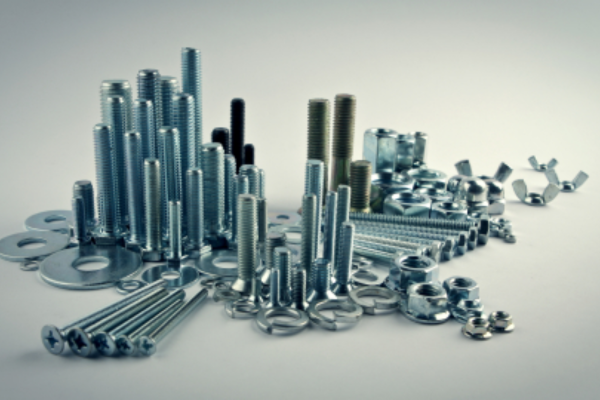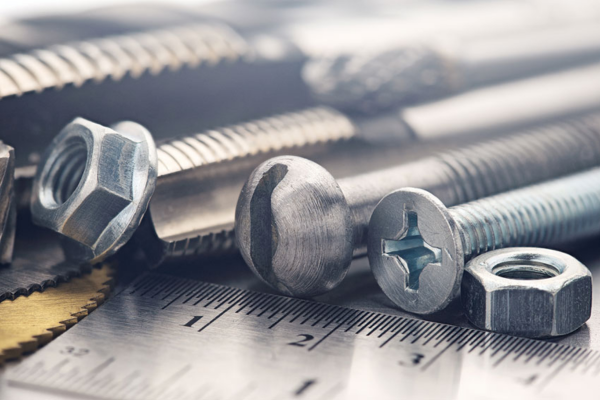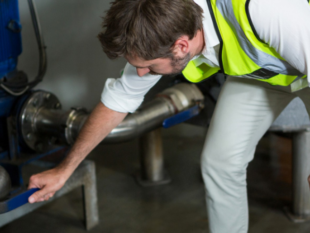Stronger, Smarter, Safer: The Essential Guide to Fasteners and Industrial Supplies
by Pijus Maity Business 01 February 2025

Industrial fasteners and supplies may not be the most glamorous part of a project, however they are essential. No matter if you are building a skyscraper or assembling machinery and putting together a DIY. The right fastener will make things happen for you!
Stronger materials, smarter design and safer applications is what moves industries, pushing them forward. The catch is, there are so many options that it becomes difficult for industries to pick the right one. Our guide will help you with just that, without a hitch!
The following article will look at the different ways you can choose the best one without a problem. Read on to find out how you can make the right decision and bring better efficiency to your industry.
Industrial Fasteners: More Than Just Nuts and Bolts

Industrial fasteners are everywhere and they come in all sizes, shapes and materials. The catch is choosing the right type which is not just the strongest, but also the right one for this job.
The right fastener can bring a lot to your industry that you may not have imagined, but will see a difference in the future.
Here are some of the common types of fasteners:
- Bolts that are built for strength and can be paired with nuts to hold components securely together. Bolts come in various styles such as hex bolts, carriage and anchor bolts.
- Screws that are more hands-on than bolts, act as their own threads within a material. This makes them ideal for applications where a nut is not needed. The options include machine, wood or self-tapping screws.
- Washers and nuts are great for providing support. Nuts secure the bolts in place, while the washers help distribute the load. Together, they prevent damage to the material.
- Rivets are an active part of structural applications that provide permanent fastening which holds up the entire strength. Helping structures stand strong during high-stress environments and vibration.
- Anchors are perfect for securing industrial fasteners into brick, concrete or other solid materials. For example, chemical, expansion or sleeve anchors.
These are all the different common types of industrial fasteners that come in use. Every application and material requires a different approach.
For example, stainless-steel bolt is great for outdoor use, whereas, a high-tensile steel fastener suits heavy-machinery better.
Industrial Supplies: The Unsung Heroes of Every Workshop
There’s more to industrial supplies than industrial fasteners. This is what keeps everything running smoothly. No matter if you’re in construction, manufacturing or automotive. The following supplies are great to ensure safety, productivity and efficiency:
Must-have industrial supplies:
- Sealants and adhesives that help bond the materials and create an airtight seal. A few examples include epoxy or silicone sealants.
- Abrasives such as sandpaper, grinding discs and cutting wheels all help achieve precision work such as cutting, polishing or grinding.
- Safety gear such as helmets, goggles, gloves and high-vis clothing all help keep the workers safe. These are essential in all industrial settings, especially in high-risk environments.
- Oils and lubricants are essential to keep all industrial equipment running. These are essential for lubricating equipment to avoid wear and tear. It also helps maintain efficiency.
- Power and hand tools such as hammers, drills and saws are important in any industrial setting. The right tools can make every job easier and bring more precision.
It is important that you stock up on quality supplies which means better efficiency, fewer breakdowns and safer working environment.
Choosing the Right Fastener for the Job
Picking the wrong industrial fastener may lead to weak connections, corrosion or catastrophic failure. It can also mean catastrophic failure! The most important thing here is focusing on why you need fastener and industrial supplies. And why you should choose it with a lot of consideration.
Here’s how you can make the right choice:
1. Consider the Material
Different industrial fasteners are compatible with only specific materials. Things such as wood screws are best for timber, while masonry anchors are best for brick and concrete. When you mix incompatible materials there can be issues such as galvanic corrosion which can lead to deterioration over time.
It can also mean poor metal reaction which can be detrimental for the structure.
2. Think About Strength Requirements
If you are undertaking heavy-duty construction, it is important to see that you have high=-tensile fasteners that handle extreme loads. A prominent example of light applications include furniture assembly which requires less force, but needs the right balance.
It is also important that you have the right balance of flexibility and durability.
3. Look at Environmental Factors
It is important to consider the external environment before you pick an industrial fastener. This is necessary as external factors can affect the way materials hold the structure. So, if you pick the wrong material in an environment that experiences high heat, moisture and chemicals, an accident is imminent.
So, consider this factor and choose fasteners that can withstand the conditions without degrading it.
4. Don’t Forget About Coatings and Finishes
Several fasteners come with better coating that protects it from external factors. Choose an industrial fastener that comes with a coating to improve its durability and support.
Some examples include – fasteners with zinc coating or black oxide or anodized finishing that prevents rust, extend its lifespan and improve the appearance.
5. Match the Right Tool to the Fastener
A great industrial fastener is only good as the tools that install it. Poor installation can mean the world of difference when it comes to its installation. That is why, make sure to check the use of the right wrench, drill bit and driver that does not damage the fastener and the material.
The correct installation will ensure a strong hold.
Importance of Quality Supplies for industrial safety

Industrial work comes with a lot of risk Methodologies For B2B Payments And Processing Stepss, which means using subpar or below-par fasteners can worsen it. Thus, ensure you use the right fasteners for efficient equipment functioning and low injuries and preventing costly downtime.
It is important that you invest in high-quality products to avoid accidents, stronger build and better long-term performance.
- Load-Bearing Capacity – Fasteners need to withstand the weight and pressure they’re designed for, or structures could collapse.
- Corrosion Resistance – Rust and wear weaken fasteners over time, making them prone to failure.
- Proper Installation – Even the best fasteners won’t work if installed incorrectly. Using the right torque, pre-drilling when needed, and ensuring a secure fit are all crucial.
The Future of Fasteners and Industrial Supplies
Technology is changing the way industrial supplies are designed and used. New materials, smarter coatings, and innovative fastening methods are making construction and manufacturing more efficient than ever.
Advanced Alloys
Stronger yet lighter materials are being developed to improve durability and efficiency.
Smart Fasteners
Some fasteners now include sensors to detect stress levels and potential failures before they happen.
Eco-Friendly Options
Biodegradable fasteners and sustainable materials are becoming more common as industries aim for greener solutions.
Make Every Connection Count
Industrial fasteners and supplies might not always be in the spotlight, but they’re critical to almost everything we build and create. Choosing the right ones means stronger structures, safer environments, and a more efficient workflow.
Whether you’re stocking up for a project or upgrading your industrial tools, investing in quality supplies will always pay off in the long run.
Also read





































































































